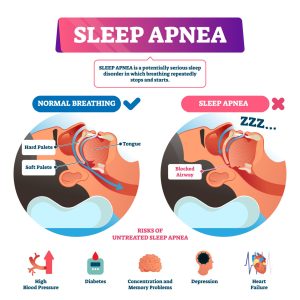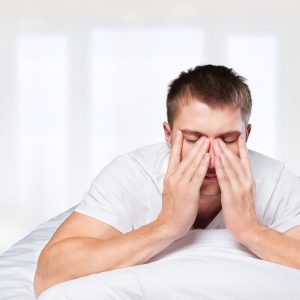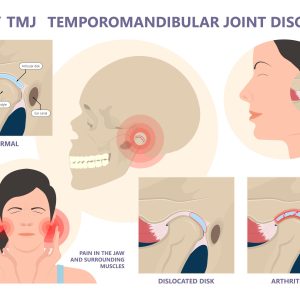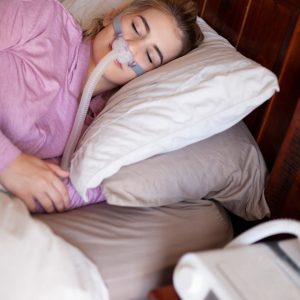Understanding Sleep Apnea and TMJ
Sleep apnea and temporomandibular joint disorder (TMJ) are closely related conditions that can lead to serious health problems and affect the quality of life. Our West Sayville dentist, Dr. Sigismondi, wants patients to be informed of the link between these issues so they can seek proper treatment. So whether you want information about sleep apnea treatment or TMJ therapy, Dr. Sigismondi is here to help. Learn more about sleep apnea and & TMJ at our Long Island dental practice by dialing 631-563-1583.
What Are Sleep Apnea and TMJ?
Sleep apnea and TMJ are two different health conditions that affect many people. Sleep apnea is a severe sleep disorder in which breathing is interrupted repeatedly during sleep. TMJ, or TMD (Temporomandibular Joint Disorder), affects the joint connecting the jaw to the skull, causing pain, discomfort, and other symptoms when you try to move your mouth. Both conditions can cause significant discomfort.
Health Risks of Sleep Apnea and TMJ
Sleep apnea and TMJ both have a range of health risks. Here are some of the most common health risks associated with these conditions.
Sleep Apnea Risks
- High blood pressure
- Heart disease and stroke
- Type 2 diabetes
- Depression and anxiety
- Irregular heartbeat
- Excessive daytime sleepiness
- Worsening ADHD symptoms
- Impotence
- Reduced life expectancy
TMJ Risks
- Chronic pain and discomfort in the jaw, face, and neck
- Limited ability to open and close the mouth
- Popping or clicking sound in the jaw
- Tinnitus (ringing in the ears)
- Headaches and migraines
- Vertigo and dizziness
- Teeth grinding (bruxism)
- Ear pain and tinnitus
If you’re experiencing sleep apnea symptoms or TMJ, it’s vital to seek professional treatment as soon as possible. Dr. Sigismondi, a dentist trained in TMJ therapy and sleep apnea treatment in West Sayville, NY, can help you identify the root cause of your symptoms and develop an effective treatment plan.
TMJ and Sleep Apnea Treatments
CPAP Therapy
CPAP (Continuous Positive Airway Pressure) is a commonly used treatment for sleep apnea. CPAP delivers a constant stream of air through a mask to keep the airway open, preventing apneic episodes. In addition, the pressure of the air helps to keep the throat from collapsing during sleep, allowing the person to breathe normally.
Currently, CPAP is one of the most effective methods for sleep apnea treatment when utilized in the long term. However, many patients find CPAP too inconvenient, so Dr. Sigismondi may recommend oral appliance therapy instead.
Oral Appliance Therapy
Oral appliance therapy is a treatment option for both TMJ and sleep apnea. An oral appliance is a custom-made device that fits in the mouth like a mouthguard and works by repositioning the jaw and tongue to maintain an open airway during sleep. Oral appliances can also prevent the teeth from grinding, a main cause of TMJ issues.
Benefits of oral appliance therapy for TMJ and sleep apnea include:
- Convenience: Oral appliances are small, easy to transport, and don’t require a power source.
- Comfort: Unlike CPAP (Continuous Positive Airway Pressure), oral appliances do not have masks or tubes that can be uncomfortable or irritating.
- Customizable: Oral appliances are made specifically for each patient, ensuring a comfortable and practical fit.
- Effective: Oral appliances effectively reduce symptoms of TMJ and Sleep Apnea.
It’s essential to work with a trained professional who can adequately diagnose and evaluate each case to determine the best course of treatment. Depending on your case, Dr. Sigismondi may recommend combining oral appliance therapy with other options, such as diet and lifestyle changes.
Diet and Lifestyle Changes for TMJ and Sleep Apnea
Our dentist may recommend making some diet and lifestyle changes, like:
- Avoid Gum and Nail Biting: Chewing on gum and biting down on your nails can stress your jaw, worsening TMJ issues.
- Eat Softer Foods or a Liquid Diet: Sticking to softer foods can alleviate pressure on your jaw and help the muscles return to their proper places.
- Maintain a Healthy Weight: Reduce symptoms by losing weight through diet and exercise, as excess weight can contribute to snoring and sleep apnea.
- Avoid Alcohol and Sedatives: To improve sleep apnea symptoms, avoid alcohol and sedatives before bed as they relax the throat muscles.
- Change Sleep Position: Sleeping on your side instead of your back can reduce sleep apnea symptoms, as sleeping on the back can cause the tongue and soft palate to collapse. It can also reduce symptoms of TMJ by taking pressure off your jaw.
- Avoid Heavy Meals and Caffeine Before Bedtime: Avoid heavy meals and caffeine before bedtime to prevent worsened symptoms. Caffeine especially should be avoided, as it can worsen both sleep apnea and TMJ issues.
- Treat Nasal Congestion: Improve sleep apnea symptoms by treating nasal congestion with over-the-counter decongestants, nasal sprays, or steam treatments.
- Avoid Large Jaw Movements: Avoid yawning, yelling, and taking big bites to prevent pain and give your jaw a better chance to heal from TMJ issues.
Frequently Asked Questions
The timeline for seeing improvement varies for each patient, but many people experience significant relief from symptoms within a few weeks to a few months of starting treatment. However, regular follow-up care is essential to maintain results and monitor progress.
A comprehensive evaluation by a trained professional is needed to diagnose both conditions. Therefore, our practice offers a thorough examination, including a review of your medical and dental history, a physical exam, and most likely a sleep study with a professional sleep specialist.
Yes, most dentists trained in treating sleep apnea and TMJ offer a range of non-surgical options, such as custom oral appliances, physical therapy, and lifestyle modifications. These treatments are custom-made to your unique needs, and your dentist may coordinate with your other health providers to ensure results.
Treating TMJ with oral appliance therapy can help alleviate pressure on the airway and improve breathing during sleep. Oral appliances correct jaw misalignment and reduce clenching or grinding which opens airways, reduces stress, and improves symptoms of sleep apnea.





